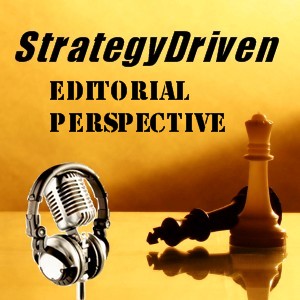“Dead”-On Business Rules: Ten Tie-Dyed and True Marketing Lessons from the Grateful Dead, part 2 of 2
Lose control of your marketing messages. A Grateful Dead concert was about having fun, meeting friends, checking out great music, escaping the everyday, belonging. Each person defined the experience a little differently, and the group defined the whole. There were interesting subgroups wandering along as part of the larger odyssey that was the Grateful Dead experience.
In building a community, the Grateful Dead were willing to give up a large degree of control over how they were defined and instead hand it to their fans. While this approach is highly unusual, it is also often very successful. When organizations insist on operating in a command-and-control environment with mission statements, boilerplate descriptions, messaging processes, and PR campaigns, their strategies can both hamper growth and backfire in execution.
Let your community define you, rather than trying to dictate what’s said – and how – about your company. When you let others define and talk about you, it is more likely that a community will develop.
Hi there! This article is available for free. Login or register as a StrategyDriven Personal Business Advisor Self-Guided Client by:
Subscribing to the Self Guided Program - It's Free!
About the Authors



 Buy-in, engagement, support… terms used to suggest commitment to a particular course of action, but are they really? What is true commitment?
Buy-in, engagement, support… terms used to suggest commitment to a particular course of action, but are they really? What is true commitment? StrategyDriven Editorial Perspective podcasts examine the unnecessary marketplace uncertainty created by today’s headline events and the actions business leaders should take to ensure their organizations succeed under these circumstances.
StrategyDriven Editorial Perspective podcasts examine the unnecessary marketplace uncertainty created by today’s headline events and the actions business leaders should take to ensure their organizations succeed under these circumstances. George Pantos is Executive Director of the Healthcare Performance Management Institute, a research and education organization dedicated to promoting the use of business technology and management principles that deliver better and more cost-effective healthcare benefits for employers who provide health insurance coverage for employees and their dependents. To read George’s full biography,
George Pantos is Executive Director of the Healthcare Performance Management Institute, a research and education organization dedicated to promoting the use of business technology and management principles that deliver better and more cost-effective healthcare benefits for employers who provide health insurance coverage for employees and their dependents. To read George’s full biography, 
 Tommy Spaulding is president of The Spaulding Companies LLC, a national leadership development, consulting, and speaking organization. Before starting his firm, he was the head of the international nonprofit, Up With People. Tommy is the founder of Leader’s Challenge, which has become the largest high school civic and leadership program in Colorado. He is the co-founder of The Center for Third Sector Excellence and the founder of the National Leadership Academy. Tommy also created Dialogue for Tomorrow, an annual international global leadership conference. He received a BA in Political Science from East Carolina University, an MBA from Bond University in Australia, and an MA in Non-Profit Management from Regis University. In 2007, Tommy received an Honorary PhD in Humanities from the Art Institute of Colorado. To read Tommy’s complete biography,
Tommy Spaulding is president of The Spaulding Companies LLC, a national leadership development, consulting, and speaking organization. Before starting his firm, he was the head of the international nonprofit, Up With People. Tommy is the founder of Leader’s Challenge, which has become the largest high school civic and leadership program in Colorado. He is the co-founder of The Center for Third Sector Excellence and the founder of the National Leadership Academy. Tommy also created Dialogue for Tomorrow, an annual international global leadership conference. He received a BA in Political Science from East Carolina University, an MBA from Bond University in Australia, and an MA in Non-Profit Management from Regis University. In 2007, Tommy received an Honorary PhD in Humanities from the Art Institute of Colorado. To read Tommy’s complete biography,